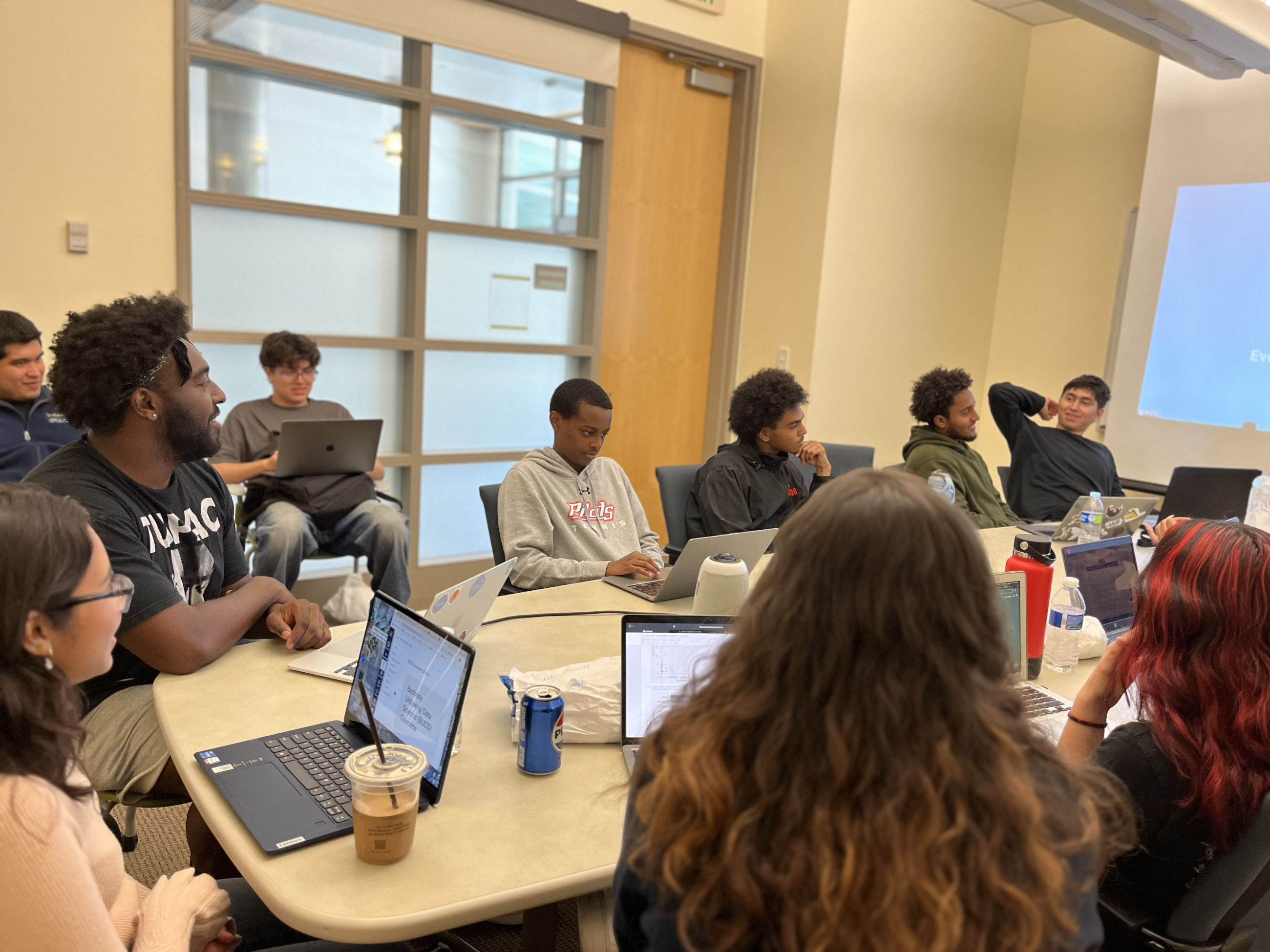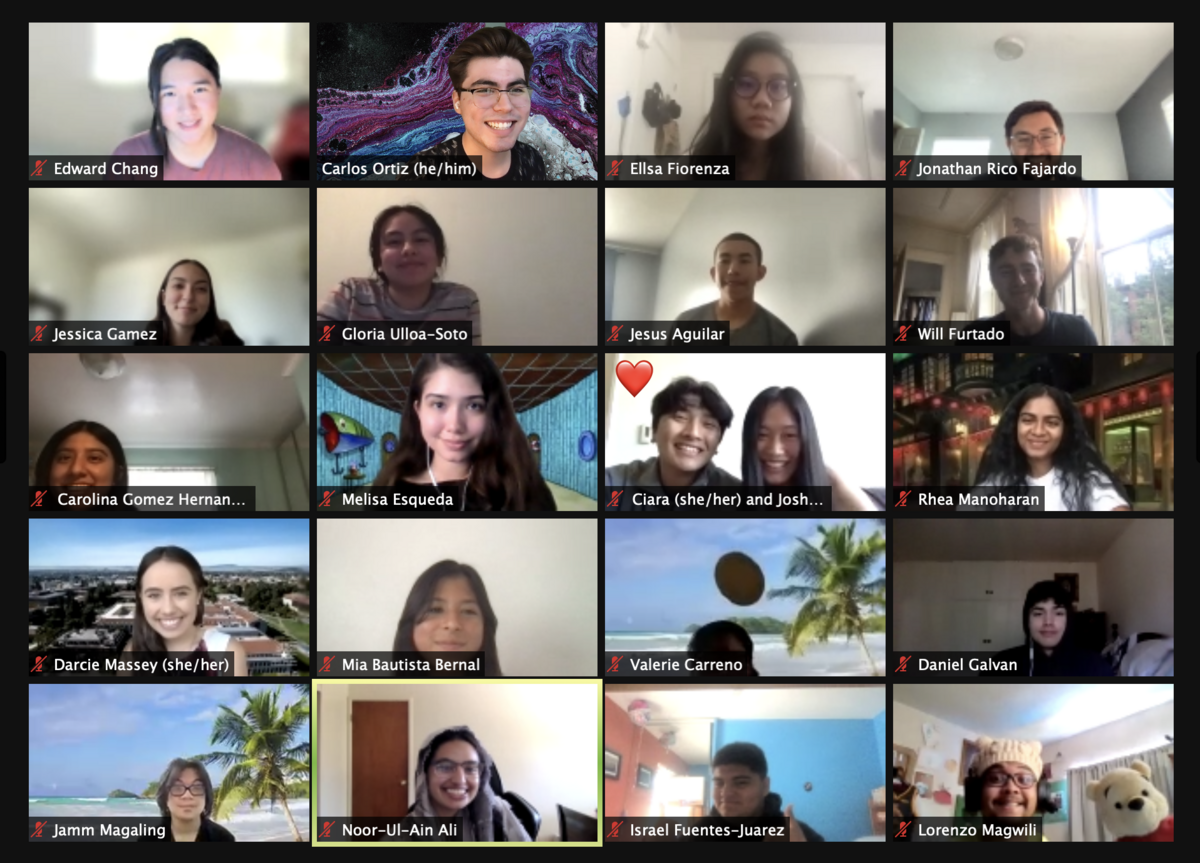The summer before her senior year of high school, Angela Loza's attention was fixated on college. A first-generation student, she’d seen the freedom and opportunities higher education had offered her older sister, including the chance to venture outside of California. To aid her with her goal, Angela had joined Achieve, a program dedicated to supporting underserved students with scholarships and college preparation.
As she prepared for college applications and pondered her major, a friend highly recommended a program she had discovered through Achieve: Berkeley Unboxing Data Science (BUDS). An initiative by UC Berkeley advancing opportunities in STEM for underrepresented high school students, BUDS provided a hands-on boot camp in data analysis and coding from UC Berkeley Data Science students. The program also showcased real-world applications of the subject, offering a glimpse into potential futures in the field.
Loza had no coding background and had struggled somewhat in math and her high school’s engineering class, but was intrigued by the newfound passion for computer science her friend had found through BUDS. Loza decided to give it a try.
Her initial apprehension melted away on the first day. “Everyone was really welcoming and the atmosphere wasn’t intimidating at all. The teaching assistants from UC Berkeley shared their personal stories with us and went the extra mile to make sure we understood the material,” Loza recalls.
One particularly powerful technique used in BUDS was encouraging the high school students to consult each other with questions before approaching instructors. This collaborative approach allowed Loza to view coding and data science as not just technical skills but as means of connecting with others. It also grew her confidence as her peers sought her help with topics she grasped quickly, like modeling graphs.
BUDS proved to be a turning point for Loza. On her college applications that fall, she selected computer science as her intended major.
Now a rising junior at the College of the Holy Cross in western Massachusetts, Loza studies computer science and philosophy. She frequently reflects on how BUDS shaped her college experience. “Many of my peers had taken AP computer science, which my high school didn’t offer, so it was very helpful having the BUDS experience under my belt,” Loza says. “It gave me the confidence to approach other students to collaborate or ask my TAs for help. It’s so easy to get intimidated, especially as a freshman, but BUDS helped bring me out of my shell.”
Loza is excited to give back through her new role on the executive board of the Students of Color in STEM this coming year. “Even though there’s a lot of interest in computer science, the field isn’t as diverse as it should be. I’m eager to support and connect with those who don’t see themselves represented.”
Looking ahead, Loza envisions a career in computer engineering or a related field. Last summer, she interned with the California Academy of Sciences, focusing on data visualization projects.
Loza is deeply grateful for the BUDS program. “The program has a huge impact on the students in it. I’m not the only one who decided to study computer science or a similar major because of it. It truly opens doors.”


